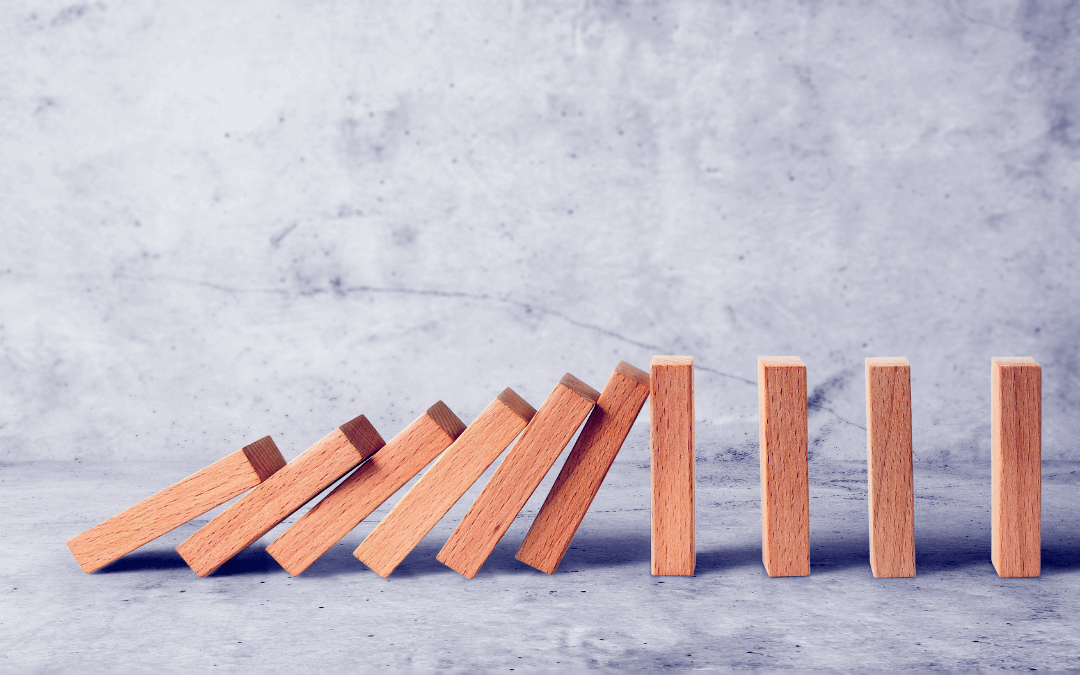Making decisions is hard. Have you ever been told to listen to your intuition when you make a choice? Having an inner voice that always knows what’s right for you sounds great, doesn’t it? Only problem, it doesn’t always work. Sometimes your gut tells you to take quick action and you do, but it turns into a disaster. You made the wrong decision after all!
Why? Is there something wrong with your intuition? And how are you supposed to trust it if it sometimes leads you astray? Why would it do that? And what is intuition anyway?

What is Intuition?
When people talk about intuition they are actually talking about their emotions. Every time you make a choice you are guided by your emotions and feelings because that’s what they are for. That’s why you have them.
Emotions trigger very specific reactions to events that help you survive. When you are about to do something good, you feel content, joyful or even excited. When you are about to do something that is bad for you, you’ll feel uncomfortable, grumpy or even scared.
If you want to always make the best choices for yourself and lead a happy and relaxed life, all you have to do is be in tune with yourself and listen to that intuition, aka your emotions.
In theory. Because let’s face it, in reality, it’s not that simple. Why the heck not, you ask? Read on for the answers.
Problem 1: Lack of Self-Awareness
How do you feel right now? Can you answer this question easily? If not, don’t worry. You’re in big company. Most of us unlearn how to tune in with ourselves. We are taught to suppress and ignore our feelings and emotions.
The busywork and time-wasters you do every day, like checking your e-mail for fiftieth time or scrolling through your social media feed, are coping mechanism you developed over the years so you wouldn’t have to face uncomfortable emotions and feelings like sadness or boredom.
We are masters at ignoring our emotions and feelings. How many times have you exploded in a burst of anger or become so tense with frustration that you could barely move your shoulders by the end of the day? That’s a lack of self-awareness because if you’d noticed how you felt, you could have released those emotions safely before they could turn into a problem, which brings me to the second issue.

Problem 2: Emotions are Cumulative
When you feel a tiny surge of anger, the emotion only lasts for about two minutes, if you take the time to feel it. But emotions are the first step in instant plans that prepare us for specific actions, which means they trigger chemical chain reactions in your body. The released neurotransmitters and hormones stay in your bloodstream for hours.
If you do not do anything to release this physical reaction, if instead, you get angry again, the next hit builds on the first one and this time the reaction is even stronger.
You don’t even need a new experience to get angry again because your brain cannot tell the difference between a real and and imagined event. So if you keep thinking about whatever made you angry in the first place, you will trigger another surge of anger and another one. And another one. Until at the end of the day you are so flooded with anger chemicals that even the tiniest irritant will make you explode.
When your body is flooded with angry chemicals or fear chemicals, you can literally not think clearly. Strong negative emotions increase your focus because they are supposed to help you deal with an aggressor or something scary right in front of you. Your body is flooded with adrenaline so you can react faster.
But when you stay in this emotional state, then this “focus” also means a narrowed vision. You are so primed for action that you become reactive.
To recap, when uncomfortable emotions build up in you, you cannot see all the choices in front of you and even if you could, you wouldn’t pick the best one. You’d pick the easiest or fastest because you are in a reactive state.

Problem 3: Feelings Baggage
While emotions are automatic reactions, feelings are our conscious processing of events. Over the course of your life, you learned how to feel about situations and topics, first from other people, then from personal experience. As a result, simple words like “love”, “money” and “risk” bring up very specific feelings in you.
This is a habit you developed over time until it became so automatic that you may have stopped questioning how you feel about certain topics and events. Your feelings have become your truths.
If these truths serve you, that’s great! If you lead the life you’ve always wanted to lead and are happy most of the time, then you’re good. Your feelings are aligned with your emotions and your desires.
If that’s not you, don’t worry. It wasn’t me for a very long time either. There’s a reason why I picked Feelings Baggage as the title of this section. A lot of us grow up learning unhelpful feelings, like being afraid of risk, even tiny ones. Or feeling disgust when we think of big piles of money or even vaguely uncomfortable about love.
Just like emotions, those feelings get in the way of your intuition, because instead of connecting to your real emotions, your brain runs a pre-programmed script based on your feelings which makes you repeat decisions and choices you made in the past.
Skills and Habits to Improve Your Intuition
And that, in a coconut shell, is why intuition might not always work for you. Your emotions, your feelings and habits get in the way. That’s why sometimes you make what you think is an intuitive choice that doesn’t work out for you.
But don’t worry. This is not the end of the blog post or your intuition. There are skills you can learn and new habits you can develop to remove the clutter and reconnect with yourself. When you do that, life becomes so much easier because you always know what to do. You always make the right decision for yourself.
Follow your intuition 2.0 long enough and you will become overall calmer and more relaxed because you build up trust in yourself. Sounds great? Fantastic! Here are skills and habits that get you there:

Self-Awareness
The fantastic news is that self-awareness is a skill, meaning something you can learn and get really good at by practising it. There are 3 different types: self-awareness of your body, your mind and your emotions. These are not separate paths but interconnected and any version you practise also helps you become more self-aware in the other two areas.
Emotional self-awareness is a particularly useful skill to improve your intuition because not only does it tell you how you feel, it also stops you from making reactive decisions and jumping the gun. The best part? You can practise self-awareness in less than 10 minutes a day.

Take Care of Your Body
There’s this unhelpful idea that our minds and our bodies are two separate entities. It actually goes back to a French philosopher hundreds (!) of years ago but it has infiltrated so many areas of our lives that for many this is a fact.
Well, it’s nonsense. Your mind affects your body and your body affects your mind. If you have ever had a panic attack, if you have ever had an outburst of rage saying things you never meant to say, you know exactly what I am talking about.
Your actions were caused by the neurotransmitters and hormones flooding your brain because if there are enough in your system, your emotions literally take over. The amygdala, the part of your brain that handles emotions, has an override switch and can turn off your prefrontal cortex, the part of your brain for conscious thought. The part of your brain that is you.
So the best way to prevent this is by taking care of your body. If it helps, imagine your body as your favourite pet. A beloved animal that needs care and love.
Give your body healthy food. Avoid harmful and toxic substances. Exercise your body. Let her breathe in fresh air and feel the sun on her skin every day. If she needs to take a break let her take that break.
And repeat. Do all of this – yes all of it! – every single day to release all the unhelpful neurotransmitters and hormones from your body so you can start each day with as clean a slate as possible.

Practise Emotional Hygiene
I just love the phrase “Emotional Hygiene”. Brad Yates used it in an interview to explain that we have to release unhelpful emotions and feelings on a regular basis so they won’t build up in the first place. Brad teaches tapping – Emotional Freedom Technique (EFT) – to do just that.
The best part: It works wonders with pent up emotions too! Some of my favourite tapping videos are Feeling Frustrated, Clearing Fear and Worry, and The Need to Feel Bad.
Crying is also a form of emotional release. You literally cry out stress hormones through your tears so whenever you feel like crying, please do! Find a place and let lose.
There’s nothing wrong with this or you. There’s nothing to be ashamed of. All you do is releasing pent up emotions. That’s it. In her book Refuse to Choose the wonderful Barbara Sher even suggested having a cry every morning to release any tension so you can start your day relaxed.
Before I discovered tapping, I also used the second self-awareness exercise to tune into an unhelpful emotion and release it safely.

Tackle Your Limiting Beliefs
Now this one is little bit harder than the previous three points because limiting beliefs are “truths” we never bother to question. They trigger our feelings about subjects, people and situations. As the name implies, though, they are unhelpful because they hold you back.
The easiest way to notice that you have a limiting belief in an area is when you want something, especially if you have wanted it for a long time, but it still eludes you then you have a limiting belief about it.
Let’s say you have always wanted to be rich. If you’re not even on the way, then you have limiting beliefs about money. Or you want to be in a loving and caring relationship but can’t find anyone who’s even ok. That’s another limiting belief.
Once you know it’s there, you need to figure out what your limiting belief is and then bust it every time it comes up. Luckily, there are more and more teachers out there able to help you with exercises, courses and programs. Look up “limiting beliefs” + the area you want to focus on and you are sure to find the right teacher for you.
And if your nose just wrinkled because you thought in an appalled hiss “She’s talking about self-help! Gross.” That’s a limiting belief and you might want to start there. Personal development is a form of growth.
Alright. This seems like a lot of change. And I know change can be quite scary but that’s mostly because we misunderstand it. We belief that we don’t change most of the time when in reality we change every day. Each time you act on your automatic emotions and your old feelings you practise the unhelpful habits that keep you stuck. Why not change things up a bit? Just a little bit. 1% every day.
Take your body for a ten minute walk. Have a salad with your dinner. Tap your resistance to change away or identify your first limiting belief. Spend 10 minutes practising self-awareness.
It doesn’t take much to tune in to your intuition and the pay-off is miraculous: A calm and happy life.
